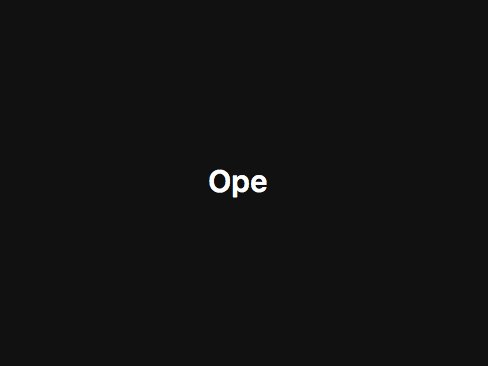In Portland, there's a place called Voodoo Donuts that once served a Nyquil glazed donut and a Vanilla Pepto doughnut. There's also a "Captain My Captain" doughnut that comes topped with that sugar cereal your mother always said "no" to as well as one called "cock and balls" that needs no further explanation other than that a cruller is involved.
Plus, if anyone wants to get married amidst the alternative pastry, that's possible, too, because Voodoo Donuts offers on-site legal wedding services followed by a coffee-and-doughnut reception.
Sound weird? Exactly. That's why there's a "Keep Portland Weird" campaign that works to preserve the city's "weirdness" – which in this case means uniqueness – by identifying and supporting local businesses and other non-cookie-cutter aspects of the city. The campaigns are also about maintaining aspects of the city's culture from fashion to language that can't be found anywhere else.
"Weird" campaigns exist in cities throughout the country, including Keep Santa Cruz Weird, Keep Vermont Weird, Keep Boulder Weird, Keep Erie Weird and Keep Missoula Weird.
Keep Portland Weird is one of the most famous weirdness campaign, thanks to the opening shots on the popular television show, "Portlandia." But the first weird campaign launched in 2000 in Austin, Texas with Keep Austin Weird.
Red Wassenich says he coined the expression when he was making a donation over the phone to a volunteer radio station. The DJ asked him on the air why he wanted to donate and he said, "To keep Austin weird."
"I liked the phrase, and thus it began," says Wassenich. "The world morphs toward homogeneity and blandness. This must be fought."
Wassenich has since launched a website dedicated to highlighting Austin's most lovable oddballs and non-commercial gems. He also wrote a book and created thousands of bumper stickers and T-shirts containing the phrase.
"I don't try to define 'weird.' It's like pornography. I know it when I see it," says Wassenich.
Although Milwaukee does not officially have a Keep It Weird campaign, Brew City has a lot of weirdness to offer.
Jeannine Sherman is the public relations director for Visit Milwaukee, and she believes weirdness is integral for a city to thrive.
"People love places that are honest and true and that are different from anywhere else. And being different is how you stand out from the crowd and draw people in," says Sherman. "I think a city's quirks can become important touchstones for visitors – the experiences they talk about when they get back home and the reasons why they want to return or recommend a place to their friends."
Milwaukee has definitely lost some of its weirdness. The closing of the Oriental Pharmacy's lunch counter in 1995 and the loss of the Brady Street Pharmacy cafe a decade later definitely knocked us down a few notches on the weird-o-meter. The Love Rock in Lake Michigan, the Public Natatorium that offered up dining and dolphin shows and the late Dick Bacon who sunbathed at Bradford Beach almost every day of the year are further examples of lost Milwaukee weirdness.
Luckily, there is still plenty of weird to go 'round. Milwaukee has Koz's Mini Bowl, 2078 S. 7th St., a duckpin bowling alley with human pinsetters, and the Safe House, 779 N. Front St., a James Bond-themed bar that requires a password to enter through a bookcase that doubles as a secret entrance.
Bryant's Lounge – with its hundreds of possible cocktail concoctions and no menu – is wonderfully weird, too.
The basement of Winkie's, the Brewhaus Kings polka band that squeezes out tunes during the fish fry at the Lakefront Brewery Palm Garden, the American Science & Surplus store, Fischberger's Variety, use of the word "bubbler" for drinking fountain and the massive glass flame atop the Wisconsin Gas Light Building that changes colors based on the weather are more examples of all that's weird – and right – with our city.
"Independent businesses give us choice and variety—all while circulating more money throughout a community, creating a stronger economy and more investment into the spaces where we live," says Summer Auerbach from Keep Louisville Weird. "Local businesses also create a sense of community and connectedness."
Maybe Brew City needs a Keep Milwaukee Weird campaign of its own. (MilWEIRDkee?) We have a lot of weird. However, the key to keeping it weird takes more than a group, it takes active support. So often, a business closes and people are disappointed, but they didn't actually spend time or money at the place in years. Preserving the weird takes commitment.
Canadian folk / rock guitarist Bruce Cockburn released an album in 1983 called "The Trouble With Normal," and the title track includes the lyrics, "The trouble with normal is it only gets worse." There are a lot of people who share this sentiment 30 years later.
"A large part of Milwaukee's appeal is that it has evolved into a thoroughly modern and vibrant community without sacrificing its personality and sense of place. We're true to our roots and you don't have to go far to find those – they represent a quirky sensibility and sense of fun, a down-to-earth, genuine character that you find nowhere else except Milwaukee," says Sherman.
Molly Snyder started writing and publishing her work at the age 10, when her community newspaper printed her poem, "The Unicorn.” Since then, she's expanded beyond the subject of mythical creatures and written in many different mediums but, nearest and dearest to her heart, thousands of articles for OnMilwaukee.
Molly is a regular contributor to FOX6 News and numerous radio stations as well as the co-host of "Dandelions: A Podcast For Women.” She's received five Milwaukee Press Club Awards, served as the Pfister Narrator and is the Wisconsin State Fair’s Celebrity Cream Puff Eating Champion of 2019.







